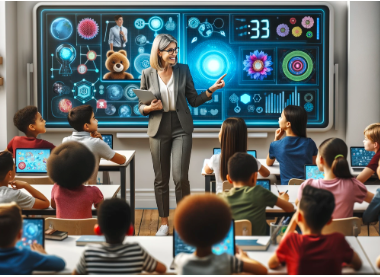Artificial Intelligence (AI) is playing an increasingly helpful role in shaping modern classrooms and online learning environments. Rather than replacing teachers, AI tools are designed to support both educators and students by improving learning efficiency, providing personalized instruction, and offering real-time feedback.
One of the most impactful uses of AI in education is personalized learning. AI can analyze a student’s learning habits, strengths, and areas for improvement to suggest custom resources or adjust lesson plans. This means students can learn at their own pace and receive support that matches their specific needs. For example, AI-powered platforms may recommend review exercises or additional reading based on quiz performance or study behavior.
Educators also benefit from AI’s data analysis capabilities. By automating administrative tasks such as grading, attendance, and assessment tracking, teachers can focus more on classroom interaction and student engagement. AI can highlight trends in student progress, helping instructors identify who may need extra help and when.
In addition to learning management systems, AI chatbots and virtual assistants are becoming popular tools in education. These tools can answer common student questions, guide learners through course materials, and even provide explanations for complex topics—all available 24/7.
Furthermore, AI supports inclusivity by offering language translation, speech-to-text, and screen reading capabilities. These features create a more accessible learning environment for students with diverse needs.
Despite its benefits, it’s important to implement AI thoughtfully. Privacy, equity, and teacher training are crucial to ensure AI is used ethically and effectively in educational settings.
As AI continues to evolve, its role in modern education is expected to grow—not to replace the human connection in learning, but to enhance it. When used responsibly, AI can help create a more responsive, personalized, and engaging experience for all learners.














